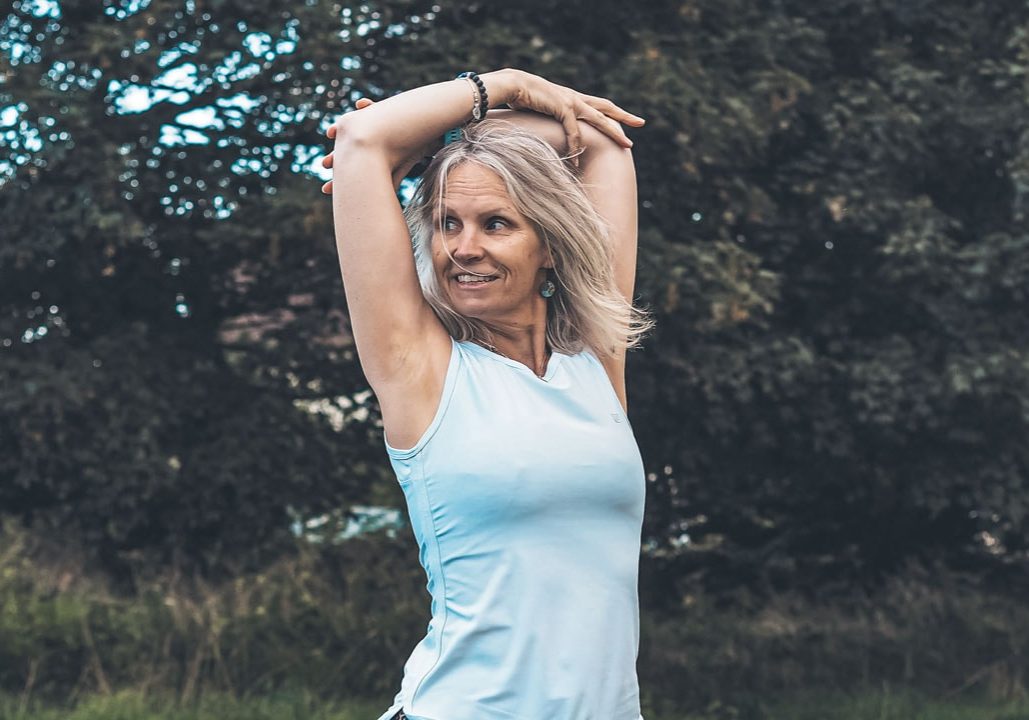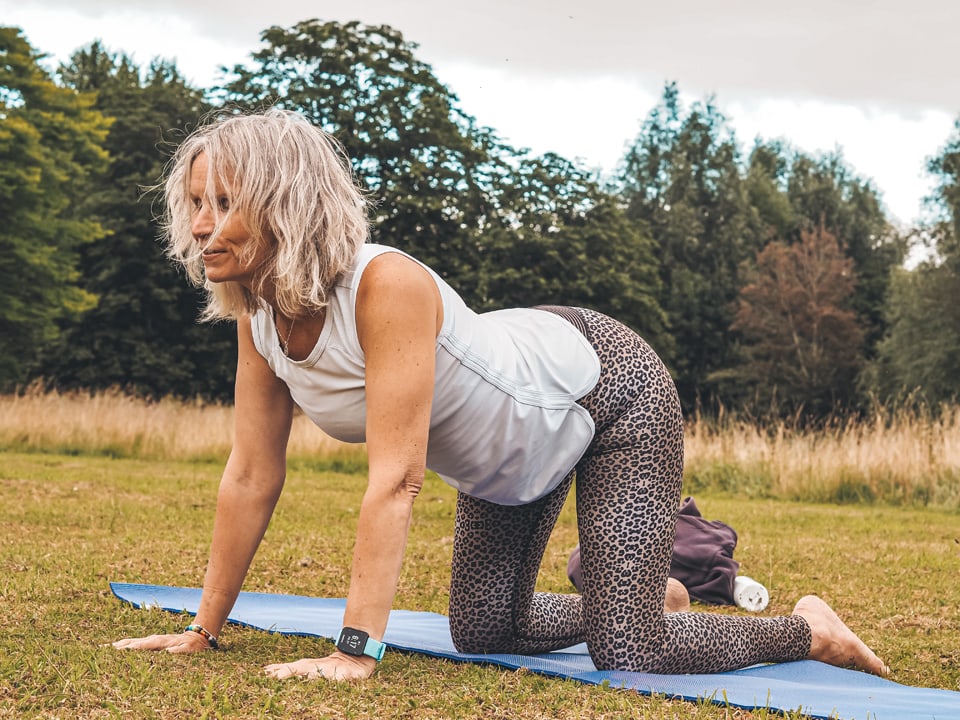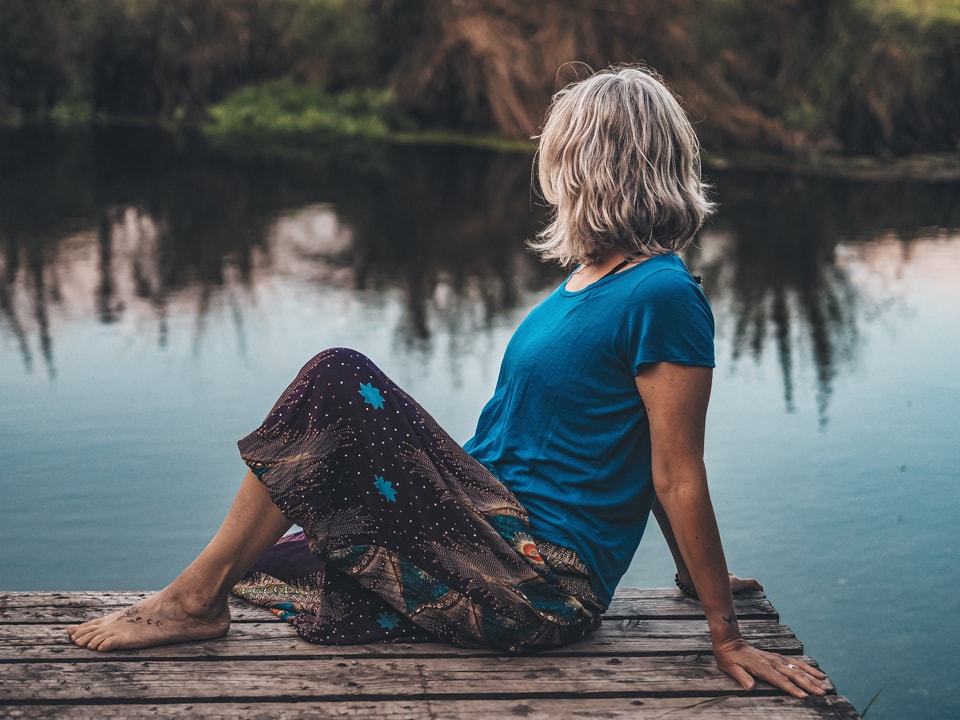
Embracing the new you
Reframing how we experience the menopause. By Louise Pitman
I remember a day, not so very long ago, I was laying in bed and whoosh, just like that, I felt as if a furnace had been fired up inside me, heating me from the inside out. It was a feeling like no other I had experienced before; this is it then, menopause.
They say that there are two things you can be sure of in life, taxes and dying. Well, I can’t help thinking that was said by a man because, if you are a woman, you can be sure that you will also experience the menopause. Women make up 52% of the UK adult population, every single one of them will experience menopause. So why the silence?
What is it that comes to mind when you look at that word? Menopause? Loss? Pain? Discomfort? Endings? Well, yes, it can be all of those things. But here is the thing: if we only ever focus on the negative, this will surely amplify our experience of menopause as being just that, a negative one.
It wasn’t until I approached menopause that I really started to tune into what it would mean for me as a woman. The end of my reproductive years, yes…but with three adult children, and being in my late 40s, more children could not have been further from my mind. But what of the symptoms? There is a list of 34 common symptoms: some women get them all, some (20%) experience none, but for all women the menopause – the ‘change of life’ – is indeed life changing.
Many women have no idea what is happening to their body as symptoms start to arrive, typically regular cycles start to become erratic, more frequent periods, longer periods – and you thought the menopause would simply be a cessation of menses? Menopause, from the Greek ‘menos’ (month) and ‘pause’ (to cease), is in fact the one day that marks the 12-month anniversary of your last menses. The period in which you start to experience symptoms is perimenopause ‘peri’ meaning around.
So how do we go about reframing this experience into something positive? What tools can we use, holistically rather than medically (which there is absolutely a place for, it’s your choice)? Well, I guess you already know that I am going to say yoga.
Of course, the healing power of yoga is the perfect tool to support a woman through the climacteric, but even that word there, ‘climacteric’, when you look to its definition in the dictionary it says, “the period of life when fertility and sexual activity are in decline (in women) menopause” What? Let’s change the dialogue here, shall we? This rhetoric is part of the problem. Yes, fertility is in decline, but in Traditional Chinese Medicine – where they call menopause the ‘second spring’ – they say that this new awakening is enabled by the intuitive body closing down the only system it knows the body can function without, to increase longevity. See, reframing, looking at the same topic from a different perspective.
Let’s give this a try. I don’t know about you, but I don’t feel that women in their 40s or 50s are neither ready nor willing to close the door on sexual activity. Some might feel that, given their experience of symptoms, sexual activity is the last thing on their mind. There is a new term to describe the many reasons, vaginally, that a woman might want to find ways to support the continuation of a sex life – Genitourinary Syndrome of Menopause (GSM). This, in effect, is reframing. Rather than talking about vaginal atrophy, which is a truly negative term (as are most terms associated with menopause), GSM is not only more palatable, but demonstrates that these issues are being given the credence they deserve.
So, what can you do if this new you is feeling a little at odds with the woman you thought you might be in midlife? In terms of GSM, one answer is to have more sex; the vaginal walls will deteriorate less swiftly with regular intercourse.

But how can you change the way you experience symptoms – see them as messages, as transmutations to a new, empowered you? Well, can I tell you what I did and see if it resonates with you?
Yoga, of course – my first love. I looked at the different ways in which I wanted to move my body, the different ways in which I needed to move my body. I introduced weight-bearing exercises into my practice to help ward off osteoporosis; when I felt a hot flush brewing I took a faster flow and looked to see what medicine came up in that energy. When I felt like I was flagging or needing to be nurtured, I would take a more restorative practice and when those unhelpful feelings arose (like they do) I dug deeper and looked to my training with Uma Dinsmore Tuli for a more embodied practice. I’ve used all of this experience to formulate my own four-week course for women and continue to walk my talk and live by the medicine of movement. In fact, just moving your body in any way that pleases you has so many benefits – walking, dancing, cycling, roller skating, swimming.
Which brings me on to something else I want to share: the life-changing benefits of cold-water swimming. Not only will you be out in nature and absorbing all that it offers, cold water immersion is the perfect antidote to hot flushes. The impact of the cold water boosts circulation by pumping blood through the arteries, capillaries and veins – a hot flush, a so-called vasomotor symptom is a product of arteries not dilating as they should, causing a temperature misfunction. Cold water stimulates the parasympathetic nervous system which can bring a feeling of calm and contentment and can aid a good night’s sleep.
Brain fog? Cold water immersion helps to increase alertness and clarity. What’s more, a rush of endorphins will give you the feel-good factor.
Many women experience joint pain and stiffness during perimenopause – not only will wild swimming have you suspended in water, the cold water will reduce inflammation in your joints. It’s a no brainer, right?
My greatest wish for you, for all women, is to see the menopause as a rite of passage, a time to step into your power. But if you are feeling less than powerful, less self-assured, be kind to yourself.
Find ways in which you can connect with yourself. What is one thing you can do today to demonstrate love to yourself. Take yourself out for coffee, take a good book, find a quiet spot, let yourself be still. Place one hand on your heart, the other on your womb space (the energy is there even if your menopause was brought on by a hysterectomy). Breathe, breathe into your heart and send love and gratitude to yourself, to your womb space.
Self-love during menopause is so important; fall in love with the new you. And, every day, demonstrate gratitude, even those days when it feels there is nothing to be grateful for. Start small: “I am grateful for the information available to me to navigate my symptoms.” There is so much information out there, in books, on Instagram, websites, menopause cafes. Make it your mission to find out all you can, don’t become a prisoner of circumstance…spread your wings and soar.
Louise Pitman – louisepitmanyoga.com. Photography by @cleo_capture





